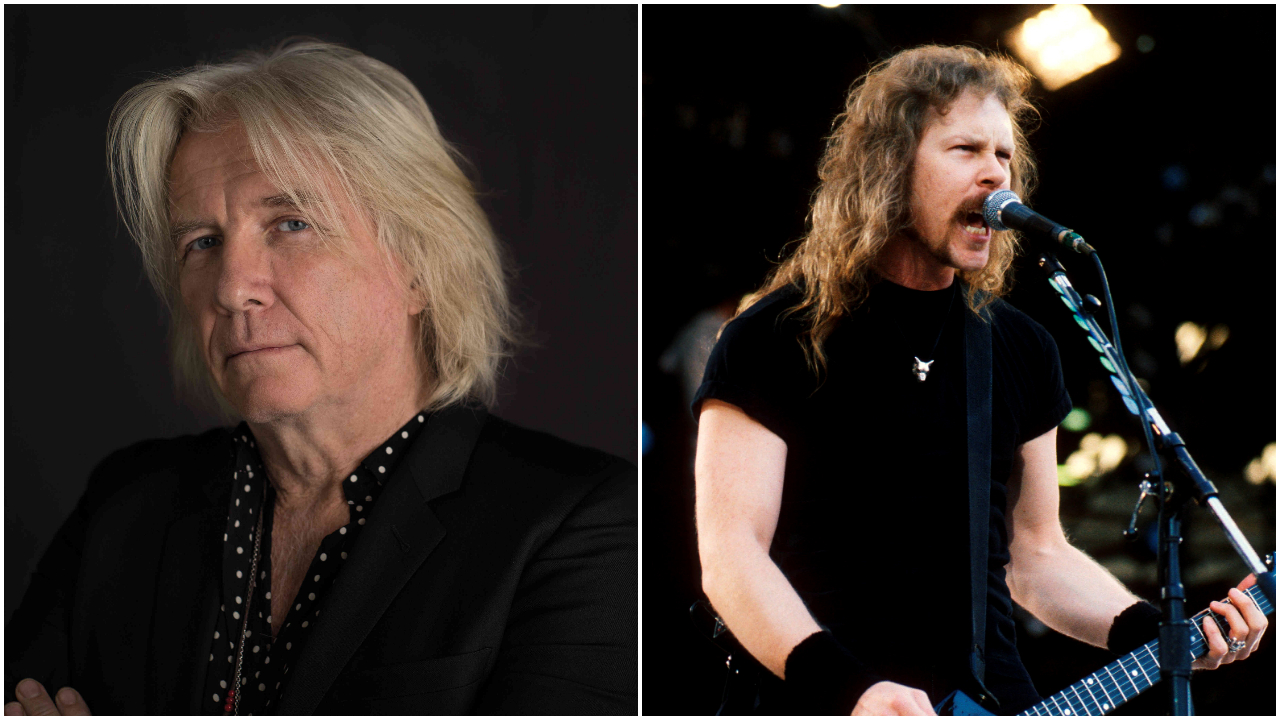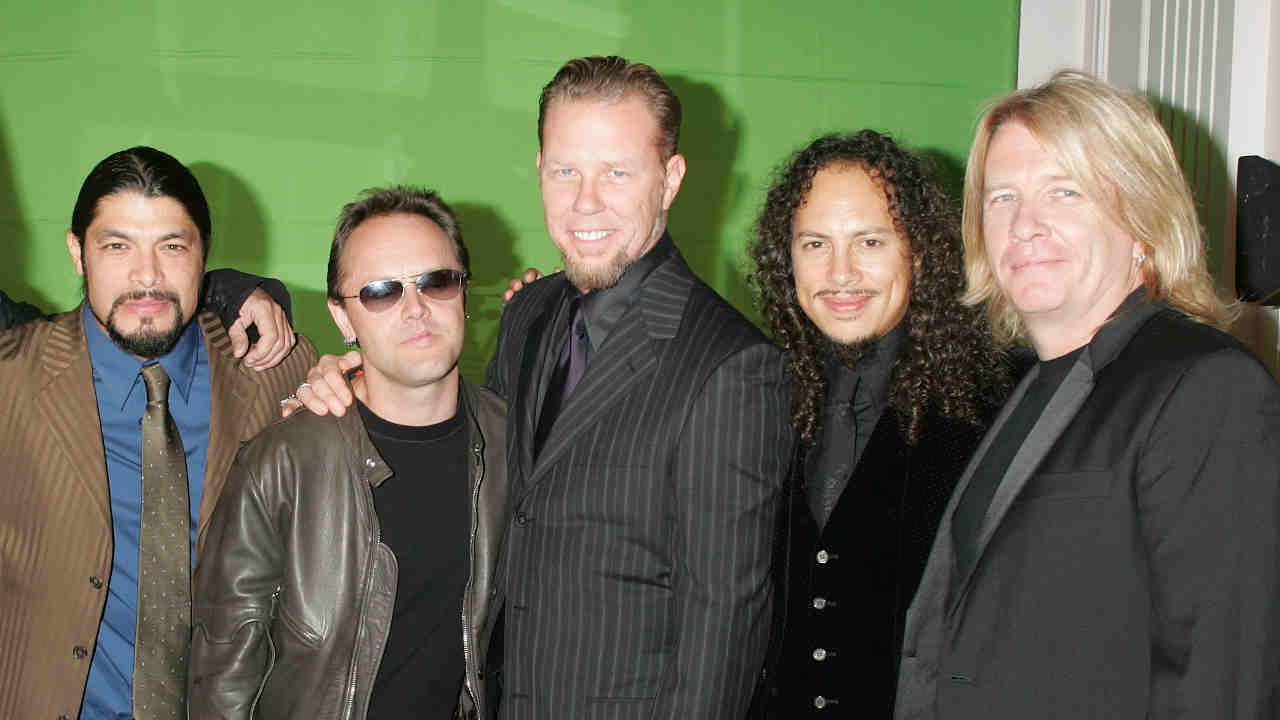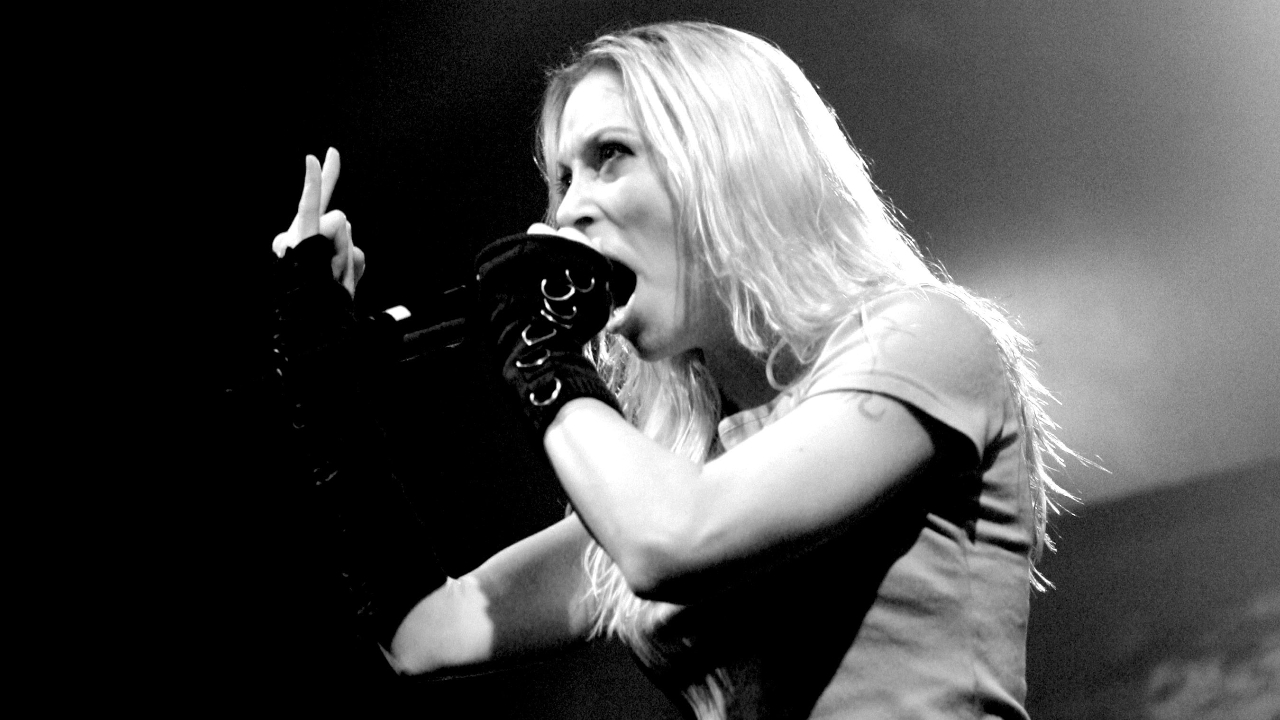“Metallica are not wimps”: Bob Rock reveals the secrets of the Black Album and Load
An exclusive interview with Bob Rock – the producer who helped steer Metallica to superstardom

Select the newsletters you’d like to receive. Then, add your email to sign up.
You are now subscribed
Your newsletter sign-up was successful
Want to add more newsletters?

Every Friday
Louder
Louder’s weekly newsletter is jam-packed with the team’s personal highlights from the last seven days, including features, breaking news, reviews and tons of juicy exclusives from the world of alternative music.

Every Friday
Classic Rock
The Classic Rock newsletter is an essential read for the discerning rock fan. Every week we bring you the news, reviews and the very best features and interviews from our extensive archive. Written by rock fans for rock fans.

Every Friday
Metal Hammer
For the last four decades Metal Hammer has been the world’s greatest metal magazine. Created by metalheads for metalheads, ‘Hammer takes you behind the scenes, closer to the action, and nearer to the bands that you love the most.

Every Friday
Prog
The Prog newsletter brings you the very best of Prog Magazine and our website, every Friday. We'll deliver you the very latest news from the Prog universe, informative features and archive material from Prog’s impressive vault.
Ambitious, driven, uncompromising and supremely self-confident, in the first decade of their career, Metallica weren’t used to hearing the word ‘no’. So when Bob Rock turned down an offer to mix the band’s fifth album, James Hetfield and Lars Ulrich were initially affronted, then intrigued. Passing on that opportunity would turn out to be one of the smartest decisions of the Canadian sound engineer/producer’s career, for it opened up a dialogue with Metallica that would ultimately result in Rock producing the quartet’s next four albums: Metallica (known globally as The Black Album), Load, Reload and St. Anger. It’s fair to say that the relationship between the Winnipeg-born studio technician and the San Francisco band wasn’t always entirely harmonious…

Having graduated from engineering and mixing hugely successful albums (Bon Jovi’s Slippery When Wet, Aerosmith’s Permanent Vacation) to producing hugely successful albums (The Cult’s Sonic Temple, Mötley Crüe’s Dr. Feelgood) your career was on a roll before Metallica entered your life: did that make it fairly easy to reject their offer to have you mix their fifth album?
“I didn’t really think of it in that way, necessarily. At the time, I was just looking out for the next best job opportunity that might come my way. I knew of Metallica, obviously, but they weren’t a band I was in awe of. I didn’t understand the sonics of …And Justice For All, because when I saw them live they were a heavy, weighty band and that record just doesn’t sound that way. That’s not a criticism, I know that to some people …Justice is the standard of what Metallica should sound like, but that was my observation from an outside perspective at that time, when the idea of working with Metallica wasn’t ever a thought in my head.”
Lars and James visited Vancouver to sound you out before inviting you to collaborate on the recording of The Black Album. What were your initial impressions of those guys?
“They seemed just like regular guys. But they had a cassette of demos with them and so I heard Sad But True and …Sandman in their basic forms and straightaway I was like, ‘Oh, I could do this.’ In my head, it felt different to what I’d heard before from them, and they told me that they wanted to do something different. They wanted a change.”
Famously, they didn’t make your life easy in the studio: while the story about you calling James ‘Dr. No’ because he said ‘no’ to almost everything you suggested makes for a good anecdote, it can’t have been so amusing at the time…
“Well, there’s always a warming-up period on every project, and, er, it just took a while longer with them! They had one way of doing things, and they didn’t really trust outsiders: not just me, they were suspicious of everybody. I can say that I’d never been involved with people who were as intense as them. But the tensions came when I challenged them or they challenged me, it was never personal.”
Sign up below to get the latest from Metal Hammer, plus exclusive special offers, direct to your inbox!
Presumably you challenging them ultimately earned you some respect?
“Maybe. But the thing is, I never said, ‘No, you’re wrong.’ I just showed them other ways to potentially get what they wanted. It’s well known that by the end both [engineer] Randy Staub and I said we didn’t want to work with them again, but that’s because we were so beat: eight months in that environment would test anyone. But some of the best work comes out of tension: with all the great bands… Jagger and Richards in the Stones, Steven Tyler and Joe Perry in Aerosmith… there’s friction. Metallica are not wimps. They believe that they’re the best band in the world, and everyone else needs to get out of the way.”
Were you surprised when they got back in touch and booked you in for what became Load?
“Well, in this industry when something has the impact that The Black Album did, it only makes sense to put that team back together. If it ain’t broke, don’t fix it. The previous sessions were intense, but when we started Load we put all that had happened behind us, and moved on.”
Do you have happier memories of the Load and Reload sessions?
“Well, yes, but to be clear, I have lots of happy memories from The Black Album too! They’re great people to hang out with, and we had a lot of fun. My 15 years working with Metallica were some of the best times of my life.”

One major change you implemented on Load was having Kirk Hammett play rhythm guitar on a Metallica album for the first time. Is it true that you initially recorded his parts while James was off hunting, and there was some anxiety as to whether he would approve?
“Ha! No, that’s a new one to me! As bands develop they naturally want to try new things, and at that point they were thinking, ‘Well, Aerosmith have two guitar players, Guns [N’ Roses] have two guitar players…’ and they thought they’d try it. It was their decision more than mine.”
The band were in prolific writing form as the Load sessions got underway, and the songs kept stacking up. Given your eye for economy on The Black Album, did you argue at all for the source material to be streamlined for just one album?
“Well, they had compiled a lot of ideas and riffs in their two or three years on the road, and you don’t know how many of those will develop into full songs. But as they shaped up, we were looking at 32 or 34 songs. I can’t remember how long the initial Load sessions were, but I remember that after we had completed eight songs, we realised that finishing everything would become a three-year project. So that’s when they made the call to split it into two records. It was a smart decision – there were more than enough good songs.”
You got James Hetfield to open up lyrically on The Black Album and commit to genuine feelings, perhaps most significantly on Nothing Else Matters. On Load and Reload did you talk through lyrics on every song?
“Not as such. When we did The Black Album, James and I talked a lot about lyricists, and I told him that his lyrics are up there with anyone… Bob Dylan, John Lennon, Leonard Cohen, whoever. I just encouraged him to embrace that, to just continue to be better.”
S&M was a huge undertaking in a different way. How did it feel watching that come together?
“It was pretty special. I mean, that all started with me suggesting putting strings on Nothing Else Matters. We got in Michael Kamen, who’s an incredible arranger, and the band were wary about the whole thing, so that in the final mix you can barely hear the orchestration, but they later realised how cool it was. With S&M, trying to keep Metallica as loud as they are and trying to keep the orchestra as loud as they are, was a challenge… basically we just turned up everything! Ha ha ha! But what a great, powerful, beautiful album.”
St. Anger marked the end of the creative collaboration between you and Metallica. The turmoil and tensions behind the making of the album were captured with brutal clarity in the Some Kind Of Monster documentary, but how do you view that time now?
“It’s hard to even put into words. Ultimately, I was there as a friend, trying to be there to help them stay together. That album needed to be made for Metallica to have a future. I feel like England and Europe embraced that record more than America, but that’s kinda a side story. No one knew what was going to happen, we just stuck at it until it was done, until the band were OK. My friends were struggling, and I was just there to help, to make sure Metallica didn’t end there. I am very proud of all the work we did together, but in some ways, maybe this was the most important work, because without it, there’s no Metallica today.”
Published in Metal Hammer 355

A music writer since 1993, formerly Editor of Kerrang! and Planet Rock magazine (RIP), Paul Brannigan is a Contributing Editor to Louder. Having previously written books on Lemmy, Dave Grohl (the Sunday Times best-seller This Is A Call) and Metallica (Birth School Metallica Death, co-authored with Ian Winwood), his Eddie Van Halen biography (Eruption in the UK, Unchained in the US) emerged in 2021. He has written for Rolling Stone, Mojo and Q, hung out with Fugazi at Dischord House, flown on Ozzy Osbourne's private jet, played Angus Young's Gibson SG, and interviewed everyone from Aerosmith and Beastie Boys to Young Gods and ZZ Top. Born in the North of Ireland, Brannigan lives in North London and supports The Arsenal.
